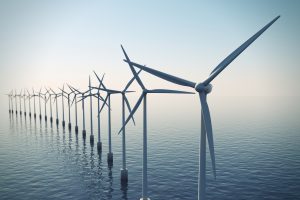It was already the case that in order to offer to install California residential solar energy systems, a contractor must be licensed by the California Contractors State License Board (CSLB) and must hold an appropriate specialty classification. Under AB 1070 enacted late last year (Chapter 662, Statutes of 2017), special consumer protections are being deployed for the benefit of homeowners. Those protections are steadily rolling out.
Articles Posted in Renewables
Forecast Sunny for Solar Contractors in California
On May 9, the California Energy Commission announced that it has “adopted building standards that require solar photovoltaic systems starting in 2020.” The 2019 Building Energy Efficiency Standards are expected to “reduce greenhouse gas emissions by an amount equivalent to taking 115,000 fossil fuel cars off the road.” California will be the first in the nation to require solar. The new standards take effect on January 1, 2020.
Court Gives Industry Participants Hope for Reduced TCPA Liability
In recent years many industries, including, by way of example only, the solar industry, have rapidly adopted text messaging to, among other things, keep in touch with their customers, to alert customers to the availability of new goods and services, and to entice customers to upgrade their systems with a promotional offer or rebate-related information. Pre-recorded calls and text messages are governed by the federal Telephone Consumer Protection Act (TCPA) and the Federal Communication Commission’s (FCC) implementing rules. In recent years, thousands of nationwide consumer class actions have been filed alleging violations of the TCPA – including bare technical violations – and seeking up to $1,500 for each alleged unlawful pre-recorded call and/or text message.
DC Circuit Weighs In on EPA’s Rule Establishing Renewable Fuel Requirements
In Americans for Clean Energy, et al v. EPA, decided July 28, 2017, the U.S. Court of Appeals for the District of Columbia  Circuit upheld the Environmental Protection Agency’s (EPA) 2015 rule establishing renewable fuel volume obligations for the years 2014 through 2017, with one exception: the court held that EPA cannot consider demand-side constraints in setting annual renewable fuel volumes.
Circuit upheld the Environmental Protection Agency’s (EPA) 2015 rule establishing renewable fuel volume obligations for the years 2014 through 2017, with one exception: the court held that EPA cannot consider demand-side constraints in setting annual renewable fuel volumes.
Offshore Wind Development Potentially Finds Smoother Sailing in Deeper Water
 In a breakthrough for offshore wind energy in the United States, construction of the Block Island Wind Farm, the first U.S. offshore wind farm, was completed in August 2016 about 30 miles off the coast of Rhode Island. The project began delivering power to the New England grid on May 5 of this year. While Block Island is a big step forward for the industry, broad public support for offshore wind farms in the U.S. has been lacking due in large part to concerns about aesthetics when the turbines are visible from land. As demonstrated by the collapse of the Cape Wind project in 2014 off the coast of Martha’s Vineyard, failure to get public buy-in can be fatal to a project.
In a breakthrough for offshore wind energy in the United States, construction of the Block Island Wind Farm, the first U.S. offshore wind farm, was completed in August 2016 about 30 miles off the coast of Rhode Island. The project began delivering power to the New England grid on May 5 of this year. While Block Island is a big step forward for the industry, broad public support for offshore wind farms in the U.S. has been lacking due in large part to concerns about aesthetics when the turbines are visible from land. As demonstrated by the collapse of the Cape Wind project in 2014 off the coast of Martha’s Vineyard, failure to get public buy-in can be fatal to a project.
FERC Announces Staff-led Technical Conference
In FERC Enters the Trump Era, The agency announces staff-led Technical Conference as Trump administration expected to name new Commissioners, my colleagues Jeff Merrifield, Sheila McCafferty Harvey, Jeff Delaney and I discuss the Federal Energy Regulatory Commission’s much-anticipated announcement that occurred on March 3 regarding its upcoming staff-led technical conference on wholesale energy and capacity markets.
What’s In Store For Electric Storage Resources?
In Energy Storage: Finding New Home with FERC Policy Statement and Notice of Proposed Rulemaking, my colleagues Michael Hindus, Kevin Ashe and I discuss the Federal Regulatory Agency Commission’s (FERC) November 2016 notice of proposed rulemaking (NOPR), January 19 policy statement confirming that electric storage resources may be able to recover both cost-based and market-based rates, and market participates’ comments on the FERC’s NOPR. Market participants seeking to bring storage resources to the wholesale electricity marketplace are encouraged to consider the implications of these recent efforts to incorporate electric storage on a wider scale.
Executive Order For Review of WOTUS Rule
Earlier today, we published our client alert Trump Administration Seeks to Limit Coverage of Clean Water Act, Executive order to set out a new definition of “Waters of the United States” discussing a February 28, 2017 executive order directing that the Waters of the United States Rule (commonly referred to as the WOTUS Rule) be reviewed and revised or repealed. Although the executive order starts the process, its completion is expected to take at least a year or two given the formal administrative process required for repeal or replacement. In 2016, the WOTUS rule was stayed by the Sixth Circuit Court of Appeals pending further action. The repeal will be significant for project developers, such as solar projects and real estate developers, as well as for farmers and ranchers, mining companies and other energy companies. More administrative actions are expected given the aggressive approach by the Trump Administration to roll back the Obama Administration’s regulation on this issue.
Additional Source: Presidential Executive Order on Restoring the Rule of Law, Federalism, and Economic Growth by Reviewing the “Waters of the United States” Rule; Construction Industry to See Greater Federal Footprint in Projects with New “Waters of the United States” Rule
Energy Companies Take Note of SEC’s Adoption of New Public Disclosure Requirements
Anyone doing international construction work knows that the U.S. Securities and Exchange Commission’s (SEC) has been continually increasing its Foreign Corrupt Practices Act (FCPA) focus on U.S. companies doing business overseas. Here’s the latest: Recently my colleagues William Sullivan and Reza Zarghamee wrote an interesting piece , New SEC Payment Disclosure Rules Raise FCPA Concerns for Energy Companies, on the SEC June 27, 2016 announcement that it had adopted final rules requiring public disclosure, among other things, of certain payments made to foreign governments by resource extraction issuers in connection with the commercial development of oil, gas and mineral rights. These disclosure requirements are expected to raise FCPA enforcement concerns for energy companies, as both the SEC and the U.S. Department of Justice will scrutinize this information for cause to open parallel investigations and potentially pursue issuers for alleged FCPA violations.
, New SEC Payment Disclosure Rules Raise FCPA Concerns for Energy Companies, on the SEC June 27, 2016 announcement that it had adopted final rules requiring public disclosure, among other things, of certain payments made to foreign governments by resource extraction issuers in connection with the commercial development of oil, gas and mineral rights. These disclosure requirements are expected to raise FCPA enforcement concerns for energy companies, as both the SEC and the U.S. Department of Justice will scrutinize this information for cause to open parallel investigations and potentially pursue issuers for alleged FCPA violations.
Photo: Sean MacEntee, energy, Taken May 19, 2010 – Creative Commons
DC Circuit: NRC Rule Is Not a Licensing Action and Generic EIS Satisfies NEPA
In 2014, the NRC promulgated a “Continued Storage Rule” followed by the Nuclear Regulatory Commission’s (NRC) issuance of a Generic Environmental Impact Statement on Decommissioning of Nuclear Facilities (NUREG-0586) to support the Rule. On June 3, 2016, the U.S. Court of Appeals for the DC Circuit, in State of New York, et al., v. Nuclear Regulatory Commission, et al., rejected the arguments made by “several states, a Native American Community, and numerous environmental organizations” objecting to the Rule and generic EIS concerning the “continued, and possibly indefinite storage” of spent nuclear fuel generated by nuclear power plants operating in the United States.
 Gravel2Gavel Construction & Real Estate Law Blog
Gravel2Gavel Construction & Real Estate Law Blog


